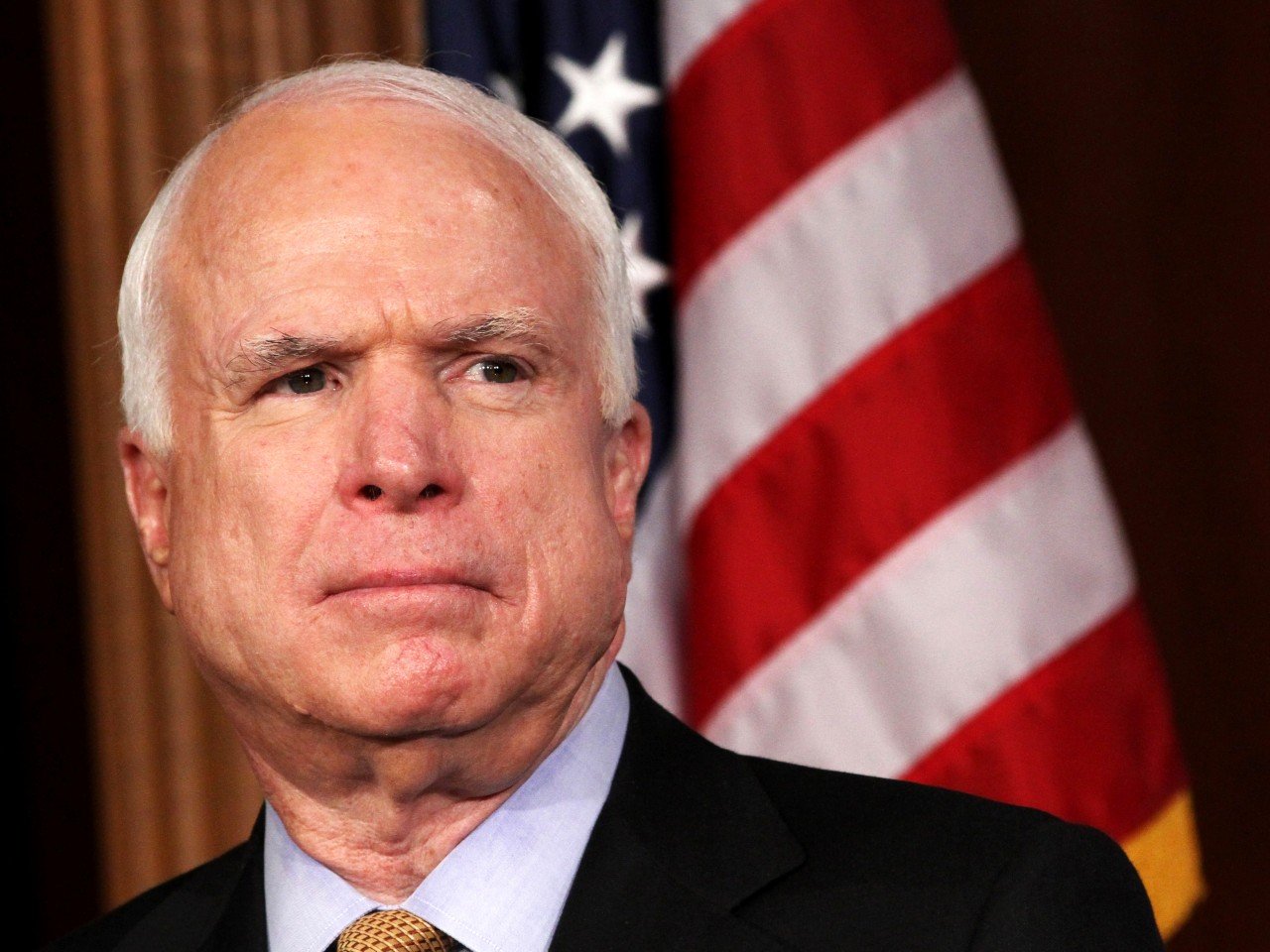
The chairman of the Senate Armed Services Committee said he will introduce an amendment next week to raise by $18 billion authorized defense spending to cover the difference between what the Pentagon asked for in its last budget and what it is seeking in this one.
Speaking Thursday at the Brookings Institution, a Washington, D.C., think tank, Sen. John McCain, (R-Ariz.) said, “I would stop the downsizing of the Army” and provide authority to spend more on operations and readiness, “which suffer first” in tight budgets.
Looking back at the Budget Control Act of 2011 that put those caps on federal spending, members of Congress said “it was something that was never going to happen,” but the across-the-board cuts with a few exceptions were made because Capitol Hill could not agree on a spending plan.
“It’s an act of cowardice” and is in ways responsible for voters’ anger and frustration that is apparent in this year’s primary elections. “They see a Congress in gridlock” and members “throw up our hands and say start the cutting.”
McCain’s approach to raising defense spending levels differs sharply from the House Armed Services Committee’s. The House version would take the additional money from the emergency warfighting account and use it for items usually included in the base budget.
Defense Secretary Ashton Carter, speaking Tuesday at the Navy League’s Sea-Air-Space 2016 Exposition, called that move “gimmickry” and said he would recommend the president veto the authorization bill if it remains after conference between the two houses.
“Secretary Carter was regretfully misinformed” about another provision of the Senate bill that would separate the research and engineering functions out of the under secretary for acquisition, logistics and technology’s current control, McCain said.
Carter addressed this provision in the same address. Frank Kendall, who holds the position now, also discussed it at the Navy League event.
McCain said that by separating the functions it would “complement additional acquisition reforms, streamline regulations,” grant new authorities for prototyping to speed weapons and systems development and hold down costs and also “impose new limits on cost-plus contracts.”
In answer to a question, he called compared those contracts to crack cocaine.
“Innovation cannot be an auxiliary affair.” McCain said the office now is “too focused on compliance,” yet programs such as the Gerald R. Ford-class carrier and the Lockheed Martin F-35 Lighting II Joint Strike Fighter have experienced delays in development and production and large cost overruns. He said in recent years $40 billion has been spent on weapons programs and systems that were never built and could have been avoided with closer oversight inside the Pentagon.
Like the reform in last year’s bill that brought the service chiefs back into the acquisition system, this change in the under secretary’s position is a “rebalance to innovation” and needed, he said.
McCain said his committee has held 13 hearings this year on the broad topic of defense reform, largely a re-look of what had changed since the passage of the Goldwater-Nichols Act 30 years ago. Included in this year’s Senate version are cuts in the size of the National Security Council Staff, a 25 percent reduction in flag and senior executive service positions and a 25 percent cut in spending on contractors providing staff work to the department. It also seeks to clarify the position of the chairman of the Joint Chiefs of Staff.
He also pointed to a provision to stand up a joint task force structure inside an existing combatant command as a pilot program that could be a model for the future. The committee news release on the program said: ” A second provision would require the Secretary of Defense to conduct a pilot program on an alternative organizational structure at one combatant command. The Secretary would select one combatant command and direct the commander to replace the service component commands with joint task forces focused on operational military missions.”
In his remarks at Brookings, McCain said the existing combatant commands had become “too stovepiped” and pointed to Thursday’s loss of an EgyptAir flight in the Mediterranean as an example of why such a change was needed. Which command would address the incident — European Command or another, he asked. He said the response in times of crisis has been to stand up these joint task forces.
Like the service chiefs and chairman of the Joint Chiefs at their confirmation hearings this years, he said Russia remains the greatest military threat and that it is “clearly on the move” in threatening the Baltic nations, occupying parts of Georgia, encouraging separatists in Ukraine and deploying aircraft, crews and maintainers to the Middle East in the Syrian civil war.
On China, McCain said, “I am not predicting conflict,” but believed its recent behavior in building artificial islands and other acts in the South China Sea were enough reasons to keep Beijing from participating in the upcoming Rim of the Pacific exercise.
On ISIS, he said they were “not 10-feet tall,” but the struggle with violent Islamic extremists would continue well into the future.
When asked about the upcoming presidential campaign, McCain said, “Obviously, I have some significant disagreements” with Donald Trump, who is expected to become the Republican nominee, as well as with Hillary Clinton, the likely Democratic nominee, citing her shift away from supporting the TransPacific Partnership trade agreement.
He hoped both would meet with experts such as retired Army Gen. David Petraeus, retired Marine Corps Gen. James Mattis and former ambassador Ryan Crocker to gather their insights into today’s pressing national security and defense issues.
The nominees “should make use of that talent.”
McCain said that defense reform is a continuing challenge and this authorization bill is not the end of his efforts in this area.





